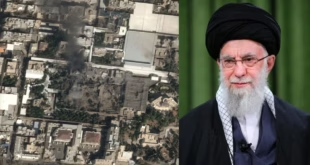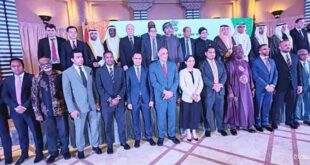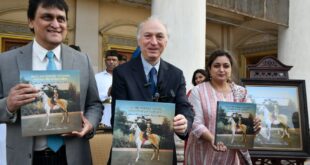In today’s world, the Muslim Ummah faces immense challenges, and many are struggling with confusion and uncertainty, especially in light of the ongoing crises in the Middle East. Disunity, leadership struggles, sectarianism, and an overwhelming focus on materialism are plaguing the Muslim community. These issues leave the Ummah questioning their path and searching for answers. Yet, the truth is, the answers lie in the timeless teachings of the Qur’an and Sunnah, which offer guidance for every situation until the Day of Judgment.
The Qur’an and the Sunnah of Prophet Muhammad (PBUH) contain divine wisdom that addresses every challenge the Ummah may face, but their transformative power often remains untapped. According to reformist and noted Oncologist Dr. Tajammul Hussain, “Unfortunately, many Muslims today do not study these sources with sincerity and depth. Instead, we tend to selectively pick teachings that align with our desires or ego, rather than seeking the pure truth from Allah’s words and His Messenger’s life.”
Remembering that Allah SWT values quality over quantity in our actions is critical. His command to strive for “ahsanu amala” (the best of deeds) reflects this. Yet, some of the things we trivialize in life—like microaggressions or subtle forms of racism—carry immense weight in the sight of Allah SWT. “The story of Iblis, the first racist who was expelled from Allah’s mercy for his arrogance, serves as a stark reminder that even the smallest trace of arrogance, racism, or injustice is intolerable”, he added.
In the eyes of Allah SWT, even the slightest arrogance is unacceptable. History shows us that every arrogant ruler who sought power and dominion over others was eventually destroyed. The desire for power, wealth, and status are traps that can corrupt the soul, and Allah does not tolerate such attachments, no matter how minor they may seem.
Similarly, lack of sincerity in our deeds, cruelty, and injustice are also among the qualities that Allah condemns. As Muslims, we are instructed to be merciful to all of Allah’s creation—Muslim or non-Muslim, human or animal—following in the footsteps of our Prophet (PBUH), who was sent as “rahmatul-lil-alameen” (a mercy to all of creation). This mercy should reflect in our everyday actions, towards everyone we encounter, regardless of their background, race, or religion.
Despite the current disheartening situation in the Middle East and globally, there is hope if we follow the example set by the Sahabah (companions of the Prophet). They were known for their sincerity, humility, and their unwavering commitment to prayer and hard work. They spent their nights in prayer and their days striving in Allah’s path, showing kindness and distributing wealth to others in need. If we, too, adopt these attributes—balancing worship with service to humanity—then we will regain the honor and respect that the early Muslims enjoyed, both in this world and the Hereafter.
However, one of the greatest threats to the Ummah today is disunity and sectarianism, which is despised by Allah SWT. The Qur’an repeatedly calls for unity among the believers, yet we are often divided by race, ethnicity, and ideological differences. This division weakens us, both spiritually and as a global community, and is one of the reasons for our current state of confusion and dissatisfaction.
Another major challenge is the corruption among many of our leaders. Political leaders often lack true understanding of the Deen and are caught in power struggles, while religious scholars, in many cases, are no longer the pillars of sincerity and piety they are meant to be. Some prioritize outward displays of religiosity, yet their hearts remain attached to the worldly life. This situation leaves the Ummah disillusioned and further divided.
In these troubling times, the Muslim Ummah must turn back to the Qur’an and Sunnah for answers. The problems we face—whether in the Middle East, India, or elsewhere—are not insurmountable. By focusing on sincerity, humility, and unity, and by rejecting arrogance, materialism, and division, we can begin to heal as a community. Allah’s guidance is clear, and it is up to us to follow it with full conviction, in both our personal and collective lives. Only then will we see the return of the glorious days the Sahabah enjoyed, and the Ummah will regain its rightful place in the world.
Spread the message. Be a messenger of virtue and goodwill.
 Gawah (The Witness) – Hyderabad India Fearless By Birth, Pristine by Choice – First National Urdu Weekly From South India – Latest News, Breaking News, Special Stories, Interviews, Islamic, World, India, National News
Gawah (The Witness) – Hyderabad India Fearless By Birth, Pristine by Choice – First National Urdu Weekly From South India – Latest News, Breaking News, Special Stories, Interviews, Islamic, World, India, National News





